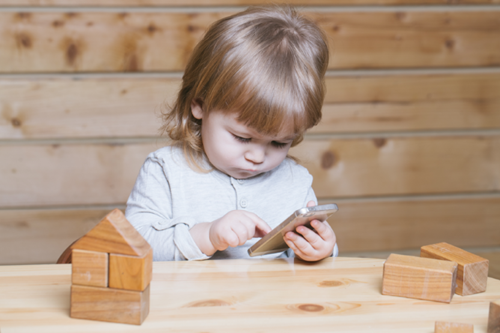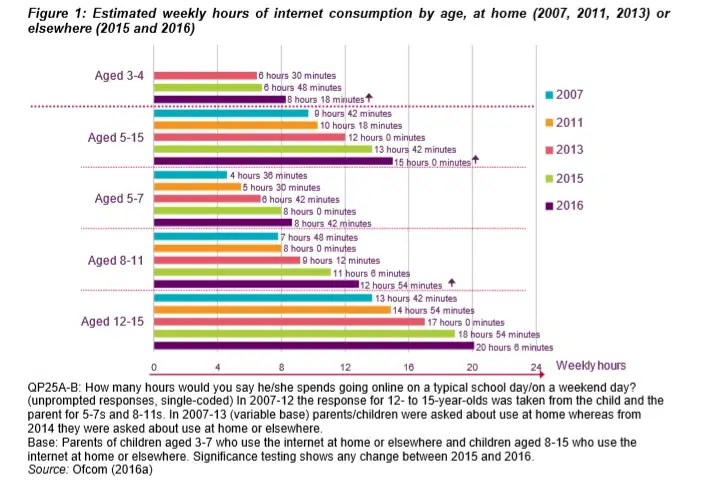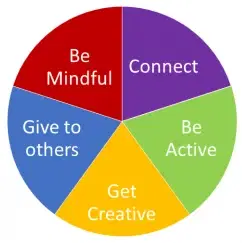Nowadays young children are using technology more and more. Whether it is a phone, tablet, laptop or watching programmes, the online world is booming. A recent report found that some 45% of 3- to 4-year-olds use YouTube, and 52% of 3- to 4-year-olds go online for an average of almost nine hours per week*. Although ICT lessons are taught to older children, it is important that young children know the importance of staying safe online and how to use technology in a safe way.

Concerns have been raised about the amount of time children are spending online, and the impact it might have, particularly by the Children’s Commissioner for England Anne Longfield. At the beginning of 2017 she pushed the need to teach online and internet safety from as young as 4 years old. Longfield saw the internet as an “incredible force for good” but said it was time to acknowledge children don’t know how to use it safely. Moving on a year, in January 2018 Anne Longfield stressed the issues of social media rising in young children stating, “While social media clearly provides some great benefits to children, it is also exposing them to significant risks emotionally”. Kirsty Williams, Minister for Education for the Welsh Government, also shared an update on work in Wales around online safety and the role that everyone has to play.
But how do you know how to keep the children in your care safe online? And how can you ensure that you’re up to date and have appropriate knowledge and understanding of the online world?
The UK government has published guidance for early years practitioners and managers to help keep children safe online. Please note some of this guidance is UK specific and some England only.
Digital wellbeing – Guidance for parents October 2018 was created as part of Childnet’s work in the UK Safer Internet Centre. The guidance to parents is about the impact that the online world can have on the lives of children and young people. The way that we intereact on the online world can have a huge impact on our physical and emotional wellbeing.
Foundation Years vodcast on online safety (October 2022) – Gill Holden, Principal Officer of the Early Childhood Unit at the National Children’s Bureau and Sue Asquith, Early Years Consultant discuss the important topic of online safety and offer helpful advice for practitioners.
Children’s time online
Children’s use of ICT and the internet is getting younger and they are going online for longer. This means that we need to be aware of how this affects our practice and how to support children and parents.

Online safety
You and your family members may be going online. You may also be going online professionally – reading this Spotlight, for example! It is important both personally and professionally, that you identify and use strategies to keep children, families and yourself safe online. Being safe is about protecting yourself from phishing and fraud as well as preserving your digital wellbeing.
Some settings will go online with children. Others will not. If you are going online with children as part of your childcare provision, you need to be clear about why you are doing this, how it supports children’s learning and development and how you are keeping children safe online.
Online safety is a safeguarding issue. We all need to keep children safe in the “real world” and the “digital world”. Whether you go online at work with children or not you still need to be aware of how to promote online safety. You may be communicating with parents online and children may be going online at home. Some parents may not be aware of the benefits and risks associated with internet use and how to support their children. Technology and online access is changing all the time and this can be challenging and often difficult to keep up with. Sometimes children know more than adults and are more proficient at finding their way round online.
Useful strategies
Use the 5 A Day Framework with your family, in the setting and share this with parents

From: https://www.childrenscommissioner.gov.uk/2017/08/06/digital-5-a-day/
- Connect – to family and friends, help children be aware of who they are connecting with and talk to you if they connect to someone they do not know.
- Be active – have time to switch off and get moving, research where to go and what to do
- Get creative – use the internet to find out new things, be creative build new skills
- Give to others – use the internet to give positive feedback to others and report negative behaviour
- Be mindful – about the time spent online and support children to manage their time online. Set limits on time spent online.
In the setting
- Keep yourself up-to-date through training and research and be aware of the benefits and risks to children
- Whilst the EYFS (England) and the National Minimum Standards (Wales) do not specifically require settings to have a policy and procedure on ICT or online safety it is useful to have one to explain how you will support children’s use of technology in your setting. Make sure your safeguarding policy and procedure, includes the use of mobile phones and cameras and other electronic devices with imaging and sharing capabilities are used in the setting.
- Be clear about why you are going online and how it supports children’s learning and development. Be able to explain this to children, parents and other professionals.
- Talk to children about how to keep safe online and what to do if they are worried
- Communicate with parents and share information
- Use devices specifically for the setting with children. Don’t use your own personal devices.
- Have relevant rules when using devices and going online
- Use privacy settings, safety modes and filters
- Ask for advice when needed
Children’s online safety test from Virgin Media
Help get up to speed with latest information from Virgin Media O2 who have designed a short only safety test covering cyberbullying, parental controls, social media and inappropriate content to help you as a provider or parent get up to speed on the things you should be keeping an eye out for and how your children are making use of the world wide web.
Resources
- Welsh Government Hwb Online Safety Zone – information and resources for those in Wales
- Online Safety toolkit for birth to five provision in Wales
- Providers in England will find it helpful to refer to ‘Safeguarding children and protecting professionals in early years settings: online safety considerations’
- Guidelines on screen time
- Childnet.com – an organisation working to support internet safety with resources for professionals and parents
- Protect Children Online – tips and strategies for parents and carers to understand an manage children’s online access
- Education for a connected world – a framework that describes the skills and understanding that children and young people should have the opportunity to develop at different ages and stages. It highlights what a child should know in terms of current online technology, its influence on behaviour and development, and what skills they need to be able to navigate it safely.
- SaferInternet.org.uk – includes an online safety helpline for professionals
- South West Grid for Learning has a toolkit for being safer online.
- Story book – Unplugged Ella gets Her Family Back. Laura Pedersen and Penny Weber. Published by Tilbury House. ISBN 978-0-88448-337-
- App and internet-connected toys safety advice from NSPCC
- Emotional wellbeing – is social media causing childhood depression (BBC News)
Other resources
- Blog: Staying safe online
- Blog: Child exploitation online: an early years issue
- PACEY’s safeguarding children course
- NSPCC/O2: Online safety campaign resources
- NSPCC: How safe are our children 2017 report
* Ofcom’s Children and Parents’ Media Use and Attitudes Report (2018 – released in January 2019)
